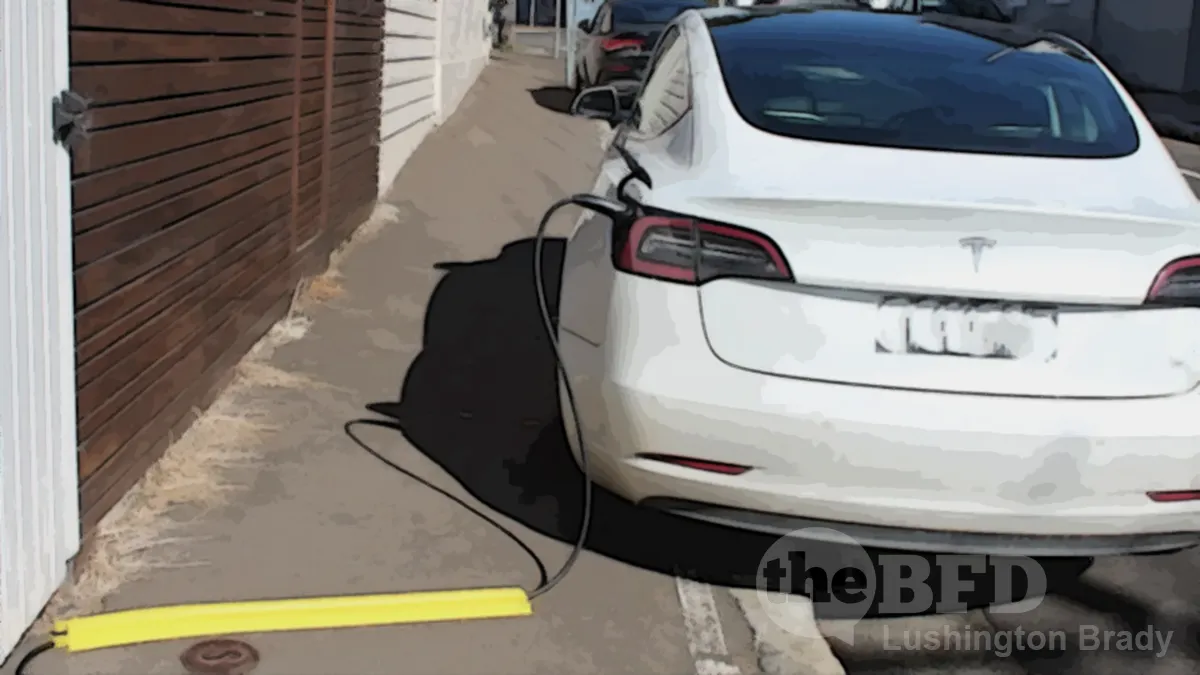Table of Contents
The good thing about most fads is that it’s pretty easy to move on. For those of us who lived before the age of social media, most of our faddish past stays mercifully buried in old photo albums and the long memories of our friends. Some fads, though, are a lot harder to shake off. It’s impossible to regrow a uterus or a set of working testicles, for instance, even after you’ve realised the gender clinic was selling you a brutal lie.
When it comes to another fad, EVs, trading in your balls is, luckily, metaphorical. But having forked out the equivalent of a luxury car price, buyer’s regret is still pretty costly.
Yet, nearly half of EV faddists are apparently willing to pay the price.
Nearly half of Australia’s electric vehicle (EV) owners are likely to go back to petrol or diesel cars rather than stick with battery-powered models, a new study has found.
McKinsey & Company is a global strategy and management consulting firm. Its Mobility Consumer Pulse report recently surveyed EV owners around the world on how likely they would be to return to good old petrol and diesel internal-combustion engine (ICE) vehicles. Turns out, quite a lot. Especially in Australia.
49 per cent of Australian respondents said they’re considering a switch back to ICE, though the report didn’t detail how many of the remaining 51 per cent were on the fence or committed to EV ownership.
Of the nine countries represented in the data – including the US, Brazil, China, Germany, Norway, France, Italy and Germany – Australia had the highest rate of EV owners considering going back to petrol or diesel power, well above the 29 per cent global average.
In fact, Australians were also much less likely to want to buy an EV in the first place.
Australians were also overrepresented in the reasons holding them back from considering buying an EV, with 63 per cent of respondents saying they “don’t like to occupy themselves with new technology”, eight per cent higher than the average response globally.
Which is probably why, despite all the hoopla, brow-beating and government meddling in the market, EV sales are still lagging far behind.
Though EV sales in Australia experienced a rare slump in April, 8974 battery-powered vehicles were sold in May, bringing the year-to-date total up to 40,636 – 26.8 per cent higher than last year.
Car Expert
Which might sound impressive, until you compare apples with apples. New car sales in Australia reached an all-time high in 2023 of 1,216,780 vehicles. That growth they’re bragging about took EVs from 2.8 per cent to a whopping 3.3 per cent of new car sales. At this rate, EVs might actually outsell ICE cars sometime before the end of the century.
So, why are Australians so unenthused by EVs?
Australians think electric vehicles (EVs) are too expensive to buy and charging infrastructure is too limited, a study has found […]
According to the study, 57 per cent of prospective new car buyers in Australia believe battery-powered cars cost too much.
That’s probably because they do.
According to the report, new car buyers are willing to pay up to eight per cent more for an EV compared to an equivalent petrol-powered model – though there remains a much wider gulf in price between combustion vehicles and their electric equivalents.
For context, a turbo-petrol MG ZST Excite is priced from $29,490 drive-away across Australia, while the less well-equipped ZS EV Excite is $39,990 drive-away – or 36 per cent more.
Then there’s the infamous “range anxiety”. Despite Australia’s vast size, most people are concentrated in the big east coast cities. Still, with mass immigration sending suburbs sprawling ever further out, the average commute time has ballooned to more than an hour. But it’s the prospect of making an inter-city trip that’s the scary part. With EVs offering an average range of 200–600 km, anyone planning to drive from Melbourne to Sydney in an EV better allow plenty of time to recharge on the way.
No wonder, then, that even those people willing to fork out the exorbitant price of an EV don’t want to have to rely totally on it.
Additional data included in the report shows 27 per cent of new car buyers are willing to go EV as their main or secondary vehicle, though only 15 per cent of used car buyers want electric power for their primary car […]
However, a massive 80 per cent of those surveyed want petrol power in their non-primary vehicles, whether it be for weekend driving, road trips or other uses.
Car Expert
So, they’re buying an EV for the smug factor, but keeping the ol’ reliable ‘planet killer’ stashed in the garage as their dirty little secret.









